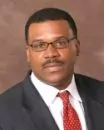On April 3, 2013 a three judge panel of the United States Court of Appeals for the Third Circuit issued an opinion overturning the Virgin Islands Supreme Court's conviction of Leon Kendall, a former judge of the Virgin Islands Superior Court, on three counts of criminal contempt based on an opinion Judge Kendall published which excoriated the Supreme Court and for his refusal to preside over a criminal trial as mandated by the Supreme Court
Judge Kendall, in unusually harsh language, had set out a point by point denunciation of a Supreme Court decision reversing a ruling made by Kendall. He wrote that the Court's reasoning was "erroneous", "improper", "had no rational basis", "lacked merit" and "made no sense." He went on to state that the Supreme Court's decision was issued to facilitate the misconduct of the prosecutor and to perpetuate a fraud on the Superior Court and was therefore "contrary to law and all notions of justice." Kendall explained that because he could no longer "be a party to [the prosecutor's] egregious misconduct" he was recusing himself from the case. The justices on the Court are former colleagues of Judge Kendall and his former employers (he had been counsel to the Court before becoming a judge), relationships which may have played a role in the personal nature of the rebukes and counter rebukes.
In his appeal, Judge Kendall argued that his judicial opinion was protected by Freedom of Speech and could not serve as the basis for criminal contempt. The Court of Appeals agreed and held that, (i) the First Amendment protects a sitting judge from being criminally punished for his opinion unless the opinion presents a clear and present danger of prejudicing ongoing proceedings, (ii) judge Kendall's opinion did not pose such a threat.
In reversing the Virgin Islands Supreme Court, the Court of Appeals wrote that "as pure speech on public issues, a judicial opinion occupies the highest rung of the hierarchy of First Amendment values and is thus entitled to special protection." The Court added that a "judge does not check his First Amendment rights at the courthouse door to be reclaimed at the expiration of his judicial tenure."
This article is for general information and does not include full legal analysis of the matters presented. It should not be construed or relied upon as legal advice or legal opinion on any specific facts or circumstances. The description of the results of any specific case or transaction contained herein does not mean or suggest that similar results can or could be obtained in any other matter. Each legal matter should be considered to be unique and subject to varying results. The invitation to contact the authors or attorneys in our firm is not a solicitation to provide professional services and should not be construed as a statement as to any availability to perform legal services in any jurisdiction in which such attorney is not permitted to practice.
Duane Morris LLP, a full-service law firm with more than 700 attorneys in 24 offices in the United States and internationally, offers innovative solutions to the legal and business challenges presented by today's evolving global markets. Duane Morris LLP, a full-service law firm with more than 700 attorneys in 24 offices in the United States and internationally, offers innovative solutions to the legal and business challenges presented by today's evolving global markets. The Duane Morris Institute provides training workshops for HR professionals, in-house counsel, benefits administrators and senior managers.
